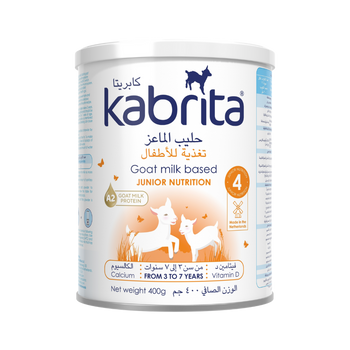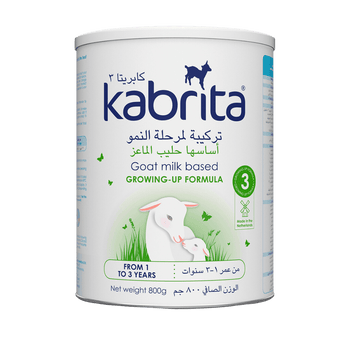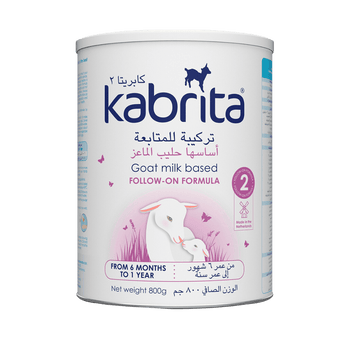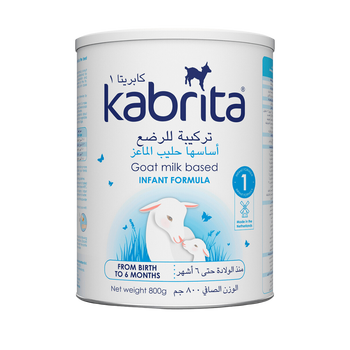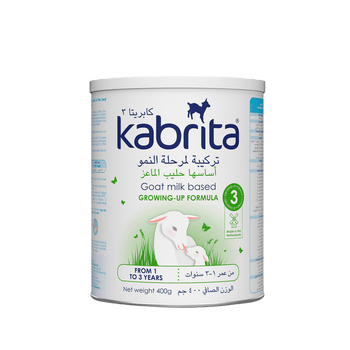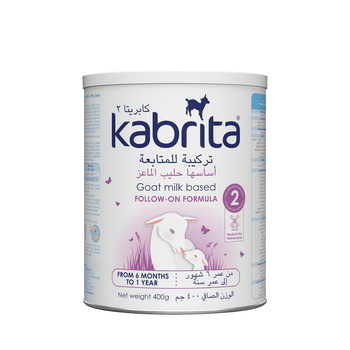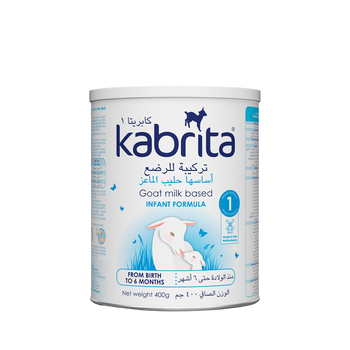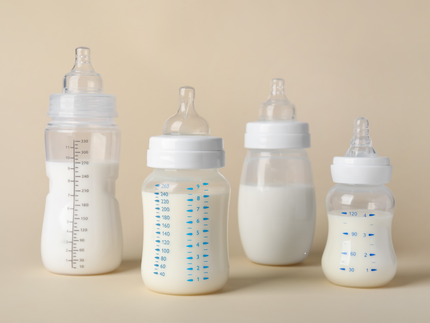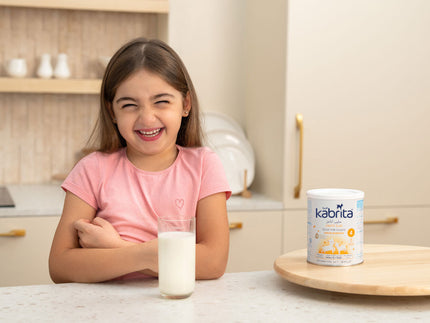All You Need to Know About Goat Milk Formula for Babies & Toddlers

For centuries, goat milk has been consumed by people around the world. More recently, it has gained popularity as a primary ingredient in infant formula. Goat milk formula for babies has become a choice for parents looking for a hypoallergenic, nutrient-rich, and easily digestible option for their little ones.
In this blog, we'll delve into everything you need to know about goat milk formula for babies, including its benefits, nutritional profile, and considerations for introducing it into your baby's diet.
Nutritional Composition
Goat milk formula may be an excellent source of essential nutrients for your baby's growth and development. Here's a breakdown of the key nutrients found in goat milk formula:
-
Proteins: Goat milk contains casein and whey proteins, which are easier to digest compared to the proteins in cow's milk. This makes goat milk formula less likely to cause digestive discomfort or allergies in babies.
-
Fats: Goat milk is rich in healthy fats, including essential fatty acids that are vital for brain development. These fats are crucial for the overall growth and well-being of your baby.
-
Vitamins and Minerals: Goat milk is a good source of essential vitamins like A, D, and B-complex vitamins, as well as minerals such as calcium, phosphorus, and magnesium. These nutrients are important for bone health, immune system support, and overall growth.
-
Immune Factors: Goat milk contains certain immune-enhancing factors, like immunoglobulins and lysozyme, which help boost your baby's immune system.
Benefits of Goat Milk Formula
-
Hypoallergenic: Goat milk formula is often a suitable option for babies who are allergic or sensitive to cow's milk. Its protein structure is less likely to trigger allergies or digestive issues.
-
Digestibility: Many parents find that goat milk formula is easier for their babies to digest due to its unique protein structure and fat composition.
-
Nutrient-Rich: Goat milk is packed with essential nutrients that support your baby's growth and development. It provides a well-rounded source of nutrition.
-
Anti-Inflammatory Properties: Some studies suggest that goat milk may have anti-inflammatory properties, which could be beneficial for babies with conditions like eczema or allergies.
Choosing the Right Goat Milk Formula
When selecting a goat milk formula for your baby, consider the following factors:
-
Age-Appropriate Formula: There are different formulas for various age groups, so ensure you choose the one that aligns with your baby's age and developmental needs.
-
Fortification: Some goat milk formulas are fortified with additional vitamins and minerals, providing extra support for your baby's health.
-
Consult with a Pediatrician: It's advisable to consult your pediatrician before introducing any new formula to your baby's diet, especially if your baby has allergies or special dietary needs.
Transitioning to Goat Milk Formula
If you're transitioning your baby to goat milk formula from breast milk or another formula, here are some tips:
-
Gradual Transition: Make the change gradually, mixing the old and new formula to help your baby adjust.
-
Observe Your Baby: Keep a close eye on your baby's response to the new formula. Look for signs of allergies or digestive issues, although these are less common with goat milk.
-
Consistency: Maintain a consistent feeding routine and offer plenty of love and support during the transition.
Goat milk formula can be a fantastic alternative for parents looking for a hypoallergenic, nutrient-rich, and easily digestible option for their babies. It is a reliable choice for your baby's growth and development.
Remember to consult with your pediatrician before making any changes to your baby's diet and ensure that the goat milk formula you choose aligns with your baby's specific needs. Ultimately, the well-being and health of your baby should be the top priority in your decision-making process.
* Breastfeeding is best for your baby
